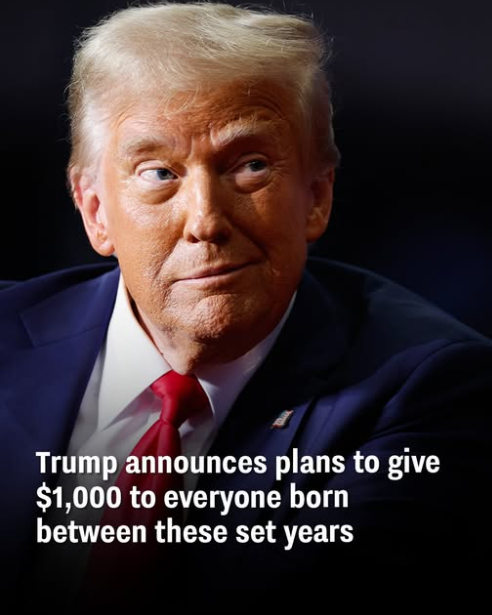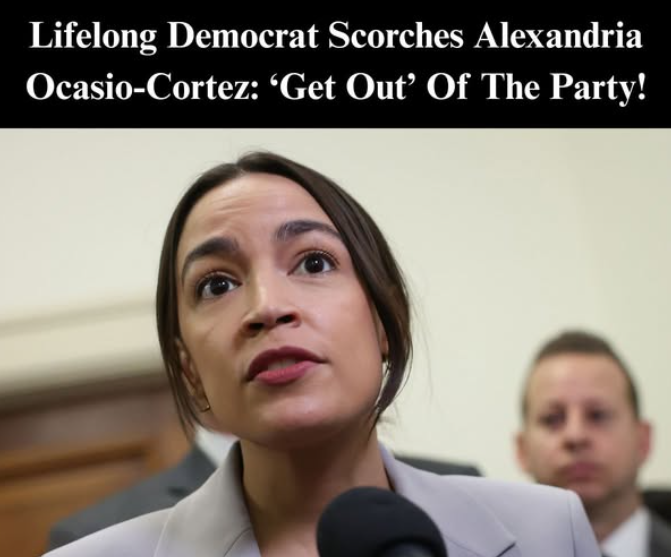Would you want your baby to receive $1,000 from the government at birth? That’s the question many Americans are now asking after former President Donald Trump introduced a bold new plan to give select newborns their own tax-deferred investment accounts — dubbed “Trump accounts.” Under this proposal, infants born between January 1, 2025, and December 31, 2028, would receive a one-time deposit of $1,000 to jump-start their financial future.
The idea is simple: parents and guardians would manage these accounts, which would grow alongside the stock market and encourage long-term saving. Supporters say this is a forward-thinking way to help working families build generational wealth and involve even the youngest Americans in the economy. However, there are significant caveats — especially since this plan is just one part of a much larger, more controversial legislative package.
What Are Trump Accounts and Who Would Qualify?
Trump accounts would be tax-deferred investment accounts administered by parents, who could contribute up to $5,000 per year. The accounts would track the overall performance of the stock market, allowing parents to grow their savings over time.
The catch? The $1,000 benefit is only for children born during the specified four-year period, so timing matters. Trump and his supporters, including House Speaker Mike Johnson, describe this as a pro-family strategy to help all kids participate in America’s economic success from day one.
A Much Bigger Bill
The Trump accounts don’t stand alone — they’re part of a far-reaching proposal Trump calls his “big, beautiful bill.” If the bill doesn’t pass, neither will these new baby accounts. Alongside the new accounts, the plan includes other tax perks — like ending taxes on tips, keeping overtime tax brackets, allowing up to $10,000 in interest deductions for American-made vehicle loans, and even a $200 tax credit for buying gun silencers. It also proposes boosting the child tax credit to $2,500 through 2028.
Proponents argue these measures will support working families and encourage investment, especially with the new savings accounts for babies.
The Tradeoff: Big Cuts to Social Programs
Despite its generous-sounding perks, the plan would also make deep cuts to social safety nets. It would tighten eligibility for Medicaid and SNAP, eliminate benefits for undocumented immigrants, and block federal funding for gender-transition procedures — moves that could reduce public spending by $1 trillion. Critics warn this would leave vulnerable groups like low-income families, seniors, and people with disabilities worse off.
A Political Gamble?
Trump insists this is all about empowering American children and rewarding work, but opponents say it looks like political horse-trading. To get the $1,000 accounts and tax breaks, lawmakers would have to accept harsh reductions in other support systems. And while the accounts could grow with the stock market, they could also shrink if the economy underperforms, making them a risky proposition for some families.
What’s Next?
Right now, it’s just a proposal. Even if Republicans support it, Democrats will likely fight the social program cuts. Plus, the timing is politically sensitive as midterm elections loom. Without passage in both the House and Senate, none of these changes will take effect — and American parents won’t see those $1,000 baby accounts.
A Debate Just Beginning
This plan has already stirred intense debate, pitting ideas about savings and opportunity against fears of lost protections for those who need them most. Whether or not this “Trump accounts” plan passes, it has opened up a much bigger conversation about how best to help American families build wealth without leaving anyone behind.










